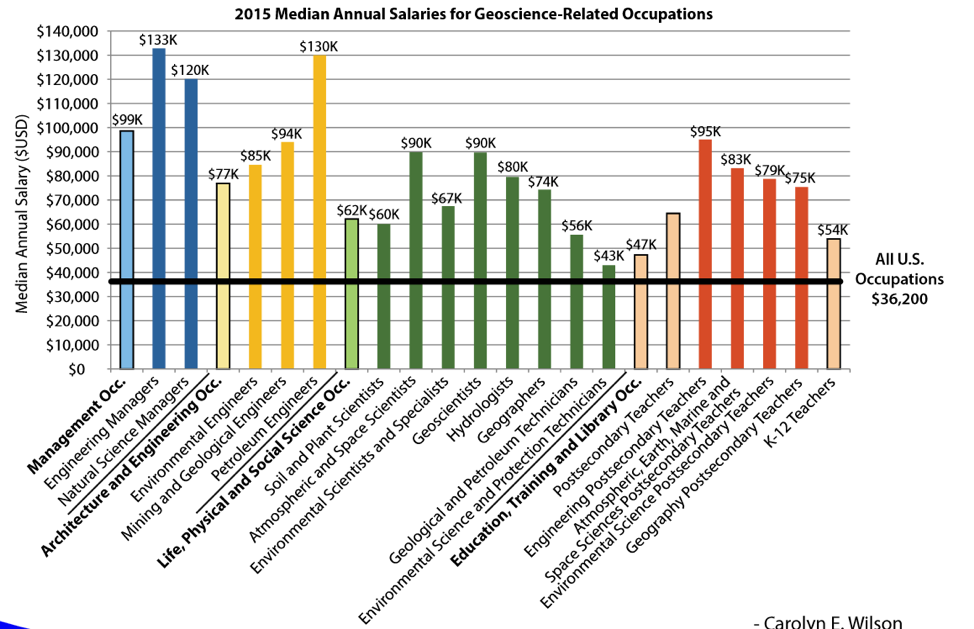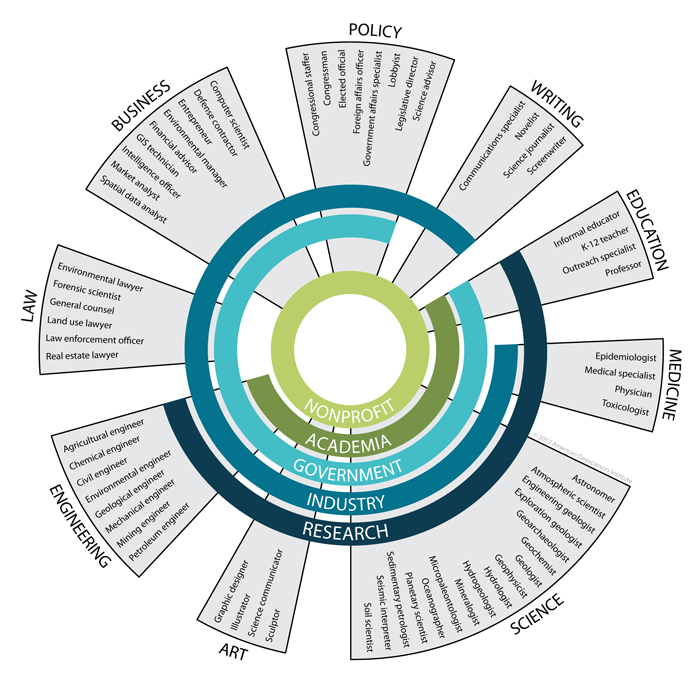Career Overview
Careers in Earth and Environmental Sciences
We rely on the earth for our habitat and for natural resources that are essential for our survival and our modern society. Human activities impact that same habitat and those key resources. Geoscientists work to understand the earth, to monitor these impacts, and to manage the environment and our natural resources. Geoscientists are expected to be in high demand in the years to come, and will be solving problems important to our communities.
Figure from AGI Currents #112: 2015 Median Salaries for Geoscience-Related Occupations
Some of the most common geoscience careers include those listed below and range from working for private companies to local, state, or federal governments. Click on each to see a profile of a geoscientist working in that field. Check out the Geoscientist Profiles to see more on specific kinds of positions available.
Environmental Monitoring and Remediation
Energy Resources
Natural Resources
Land Management
Natural Hazards
Weather and Climate
Training in geoscience is important for a career as a geoscientist. However, a variety of careers can benefit from training in the earth sciences, providing critical problem solving skills and an important knowledge base centered around the earth, natural resources, natural hazards, and the environment. This can include careers in business, policy, writing, education, art, law, medicine, and more!
Illustrator: Kathleen Cantner. Content: Heather Houlton & Abigail Seadler
From https://www.americangeosciences.org/workforce/workforce-infographic
1American Geoscience Institute Currents #93: Explanation of the predicted geoscience workforce shortage. https://www.americangeosciences.org/workforce/currents/explanation-predicted-geoscience-workforce-shortage
2Bureau of Labor Statistics, U.S. Department of Labor, Occupational Outlook Handbook, Geoscientists.
https://www.bls.gov/ooh/life-physical-and-social-science/geoscientists.htm

